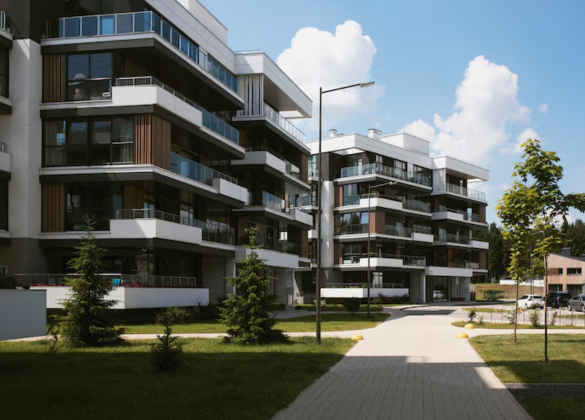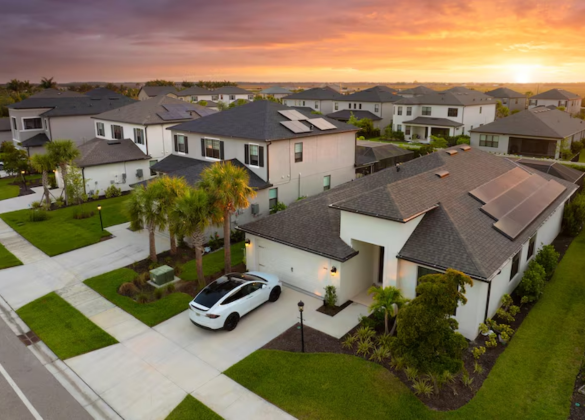How to Build a Game-Changing Real Estate Content Marketing Strategy?
The real estate industry has changed a lot over the last decade. Gone are the days when yard signs and newspaper ads closed deals. Today, it’s about online content. Buyers, sellers, and investors are doing their homework online before ever contacting a real estate agent. About 99% of homebuyers used the internet in their home search process in 2022 (Statista, 2023).
So, here’s the big question: If your next client is Googling right now, will they find you or your competitor?”
That’s where Media Search Group steps in.
We offer specialized real estate content marketing services in Houston, Austin, Dallas, San Antonio, Los Angeles, Chicago, Las Vegas, New York City, Jacksonville, Atlanta, Phoenix, and all the cities across and beyond the United States.
We help real estate agents, brokers, agencies, and realtors attract, engage, and convert their audiences with precision content strategies.
At Media Search Group, we don’t just create content for the sake of it. We build customized real estate marketing engines that turn your listings, local insights, and expertise into powerful lead-generation machines.
Still relying on yard signs and outdated email blasts? You’re not alone but you’re also not getting leads. Every month you delay your real estate content marketing is a month of lost traffic, lost trust, and lost sales.
Schedule a Free Consultation and let’s turn your content into closings.
If you're tired of generic marketing tactics that bring no leads, this guide will walk you through building a strategy that delivers real results.
The Real Estate Content Shift: Why Traditional Marketing Isn’t Enough
When was the last time you picked up a property magazine, checked real estate ads in a newspaper, or made a purchase decision because of a flyer?
Traditional marketing tools like print ads, cold calling, and billboards are becoming less common and effective for one simple reason – consumer behavior has changed. People are online, and they expect personalized, value-driven content, especially when it comes to making probably the biggest investment of their life – buying a home.
The problem? Many real estate businesses are still stuck in the past.
Here’s the hard truth:
- Print ad response rates have dropped significantly in the last decade.
- Email open rates for mass campaigns are plummeting.
- Digital-savvy millennials and Gen Z now make up over 40% of homebuyers.
If your marketing isn’t digital-first, informative, and engaging, you’re invisible.
That’s why content marketing isn’t just a trend. Content is the backbone of modern real estate branding.
7 High-Impact Strategies to Win Your Real Estate Content Marketing Game
Marketing in the real estate industry today is going beyond listings, prices, or even the properties themselves. It's now more about delivering value, building trust, and positioning yourself as the local authority in real estate.
If your content doesn’t solve problems, connect emotionally, and guide potential clients through the buying or selling journey, you’re just another name in a sea of real estate agents.
Below are seven high-impact strategies that will help you level up your real estate content marketing and generate more qualified leads.
1. Create an Active High-Value Real Estate Blog
A blog is far more than a place to share company news. It’s your primary driver of organic traffic and authority.
Why does blogging matter so much for real estate marketing? Because search engines love fresh, helpful content.
A real estate blog gives you the opportunity to answer the very questions your clients are typing into Google every day.
A well-executed blog can:
- Establish your expertise in local markets
- Educate first-time buyers, sellers, and investors
- Rank your website higher on Google search results
- Nurture leads through informative and trust-building content
Start with topics like:
- “First-Time Homebuyer Checklist in Miami”
- “How to Stage Your Home to Sell Faster”
- “What You Need to Know About the Los Angeles Housing Market in 2025”
When you cover their real pain points and answer their common queries, they are more likely to trust you over others.
And remember write like a human, avoid jargon, and write the way your clients speak.
2. Deliver a Browsing Experience that Sells Homes
Your potential clients expect nothing less from you, especially when they can literally hit that back button if they don’t like your content right from the start.
Your real estate website is the first impression many potential clients will have of you. And in a competitive real estate market, what you (site visitors) see is what sells.
Do you know what sells faster than a product? Experience!
If your site visitors find it easy and fun to explore your website, you can garner the attraction of more potential homebuyers and sellers than a website with poor user experience.
An excellent user experience (UX) has the power to convert curiosity into clicks and clicks into calls.
Here’s how to optimize your real estate website for a better user experience:
- Mobile-first design: Over 70% of real estate searches begin on mobile.
- Fast load times: 40% of users will leave if your site takes more than 3 seconds to load.
- Simple navigation: Make listings easy to browse and your contact info obvious.
- Clear CTAs: Use buttons like “Schedule a Viewing,” “Talk to a Realtor,” or “Download the Buyer’s Guide”.
Pro tip: Use behavior tracking tools like Hotjar or Crazy Egg to see where users drop off and fix it.
3. Use Visuals to Tell a Story That Sells
The real estate industry is purely visual. Buyers want to see the lifestyle you’re offering. If your photos or videos don’t spark that emotional connection, your leads will move on.
What kind of real estate visuals drive engagement and conversions?
- High-resolution images with great lighting and composition
- Virtual tours or 3D walkthroughs using tools like Matterport
- Drone footage for luxury homes or properties with unique land features
- Before-and-after staging photos to showcase the transformation
- Infographics that break down complex data like mortgage trends or school zones
It is important to note that quality visuals on real estate websites do more than show - they sell.
4. Build a Subscriber Base to Keep Site Visitors Engaged
People don’t like to open random marketing emails but they are more likely to open an email if they’ve subscribed to a newsletter and if that newsletter really provides value to them.
If someone visits your website or blog, finds value, and leaves without subscribing, you’ve missed a golden opportunity.
Email marketing still delivers one of the highest ROIs in digital marketing, especially when you’re targeting a niche like real estate.
Plus, it helps you make it easier for people to recall your brand name and find their way to come back to you.
Strategies to grow and engage your list:
- Add opt-in forms on your blog posts and home page
- Offer a free lead magnet like “The Ultimate Guide to Buying Your First Home in Columbia, SC”
- Use email automation to segment and nurture leads (first-time buyer, seller, investor)
- Send consistent newsletters with listings, blog recaps, and local news
Tip: Make your real estate content about them, not you. Focus on what they want to know about local real estate, not just what you want to share.
5. Share Real-Life Success Stories and Testimonials
- Write detailed case studies showing how you helped a client sell above asking price.
- Use video testimonials of happy clients talking about their experience.
- Highlight before/after outcomes, such as how staging improved showing traffic.
- Share personal stories on social media about your clients’ journeys.
Nothing reassures a skeptical buyer or seller more than hearing from someone who’s already been in their shoes.
The second most powerful thing after word-of-mouth recommendations are real testimonials and success stories you can share online.
But don’t stop at generic 5-star reviews. Go deeper. Real estate is personal. Make your content reflect that human element.
How to use success stories in content:

6. Integrate Your Website with Trusted Real Estate Platforms
You don’t need to compete with Zillow, Realtor.com, or Trulia because you can collaborate with them. These platforms already attract millions of homebuyers & sellers and can lend your real estate brand instant credibility when you appear on them.
What you should do:
- Keep your listings up to date and optimized for each platform.
- Use consistent branding across profiles.
- Link apps and platforms back to your main website or blog.
- Embed listing widgets from these platforms onto your site.
- Monitor and respond to reviews and inquiries on each channel.
Pro tip: Make sure all calls-to-action (like “Contact Agent”) route directly to you.
7. Use a Combination of Viral, Trendy Content and Evergreen Content
Chasing trends is important in today’s time to stay relevant to your target audience. But timeless content is what helps you build authority in the long term.
Evergreen content refers to blog posts, guides, videos, and tools that remain relevant for months or even years. Think of them as the “foundation” of your content library.
Examples include:
- “Home Inspection Checklist Before Buying a House”
- “How to Choose the Right Mortgage for Buying Your First Home”
- “10 Questions to Ask Your Realtor Before Selling”
Balance these with timely updates, such as local market shifts, interest rate trends, or news about upcoming developments in your area.
Better yet, create content hubs where you update evergreen posts with the latest information, keeping them fresh for SEO while maintaining their long-term value.
Hyperlocal Content: Your Ace to Real Estate Market Success
Real estate is local. But when it comes to building trust and driving organic traffic, hyperlocal is what your intent should be when writing real estate blog posts.
As a real estate business, you’re not just selling houses. You’re selling neighborhoods, lifestyles, and futures. So, how do you help buyers imagine themselves living in a place they’ve never stepped foot in? The answer is hyperlocal content.
What Is Hyperlocal Content and Why Should You Care?
Hyperlocal content zooms way in. Instead of talking broadly about “Houston real estate,” you're painting a picture of The Heights, Montrose, or Spring Branch. It’s the difference between saying, “There are great schools nearby,” and writing an entire post about Garden Oaks Montessori and why parents love it.
Google loves hyperlocal content because it’s specific, naturally keyword-rich, and incredibly helpful. But more importantly, your potential clients love it, too because they want the inside scoop that only a local expert (like you) can give.
What Should You Write About in Your Real Estate Blog?
Easy! Think Like a Local.
Let’s break the approach to hyperlocal content for real estate agencies down into content buckets that are easy to create and endlessly repeatable.
1. Eat, Drink & Explore
If you are a real estate agent in Austin, you can write about – what’s it like to live in East Austin, TX? Write about that cozy taco joint on East Cesar Chavez Street, or the craft brewery that hosts local bands on Friday nights.
If you're targeting homebuyers in Orlando, FL, highlight the best brunch spots in Winter Park or dog-friendly cafes in College Park.
Pro tip: Do a local roundup “5 Best Pizza Spots in Fort Worth’s Near Southside” or “Top Coffee Shops for Remote Workers in Nashville’s East End."
2. What’s Happening Around Town?
Targeting homebuyers who are new to Phoenix, AZ? Homebuyers will want to know about farmer’s markets in Arcadia, spring festivals in Roosevelt Row, or the monthly Art Walk. Hyperlocal content allows you to plug into local calendars and promote community events. It’s relevant, timely, and helpful. Plus, it keeps people coming back to your blog.
3. Schools with Quality Education
Don’t underestimate the power of good schools in a buyer’s decision-making. Blog posts like “Top-Rated Elementary Schools in San Antonio’s Stone Oak Neighborhood” or “Why Parents Love P.S. 234 in NYC’s Tribeca” can bring in highly targeted traffic from homebuyers with kids.
These aren’t just informative; they show that you understand what matters most to families.
4. Local Economy & Business Buzz
Is Columbus, OH seeing a boom in tech startups? Is Tampa, FL attracting remote workers with co-working spaces in the Hyde Park district? Talk about it on your real estate website. Hyperlocal economic news like small business openings, real estate appreciation trends, or job growth can establish you as a trusted local real estate agent with in-depth knowledge about your area and nearby communities.
Want this done for you by content pros? Book a free consultation today.
Types of Real Estate Content That Work for Agents & Brokers
As a real estate agent or broker, your content needs to inform, inspire, and convert. Otherwise, it is just taking up space.
The good news? You’ve got more content opportunities for your real estate blog than you think.
The trick is to use the right mix of content types that speak to where your clients are in their journey.
Let’s dive into the different types of content for real estate agents, brokers, realtors, and bloggers and how you can tailor them to your market.
1. Property Descriptions That Sell Emotion
You know the power of great visuals but don’t underestimate the words. A killer property description should do more than list square footage. It should sell a lifestyle.
Example: Instead of “3-bedroom home in Indianapolis,” try:
“This sunlit Irvington single-family home blends vintage charm with modern upgrades and is just a short stroll to local cafes, farmers markets, and parks.”
Focus on emotional hooks, unique features, and nearby amenities. Homebuyers want to feel what it’s like to live there.
2. Buyer & Seller Guides That Educate and Convert
- “Top Energy-Efficient Homes in Columbus, OH”
- “What Makes a Property Eco-Friendly in Today’s Market?”
Educational content is a lead magnet especially for people just entering the market. A well-crafted “First-Time Buyer’s Guide to Omaha” or “Your Step-by-Step Seller’s Checklist in Oklahoma City” positions you as a real estate expert and builds trust right out of the gate.
These guides are great as downloadable PDFs to collect emails or nurture leads via email automation.
3. Sustainable Living Content That Builds Authority
As more buyers are now prioritizing green living, showcasing sustainability is no longer optional.
To impress these homebuyers, you can try content like:

You can also cover topics like solar panel benefits, smart thermostats, or sustainable construction trends. Green buyers are growing, so meet them where they are.
4. Personalized Neighborhood Spotlights
Generic content doesn’t sell anymore. Hyper-personalized content focused on neighborhoods is what helps drive leads.
Example:
- “Why Young Families Are Moving to Northside Columbus?”
- "Living in Midtown Omaha: Best Coffee Shops, Schools, and Weekend Spots.”
It’s best if you include maps, resident interviews, walkability scores, and lifestyle highlights to build serious engagement on your website.
5. Virtual Tours & Interactive Property Content
Virtual tours aren’t just trendy. They’re essential. So, to stay relevant and attract more homebuyers for your seller clients, consider virtual tours.
For instance:
- 360° walkthroughs of a historic home in Indianapolis’ Old Northside.
- Interactive floor plans for a sleek downtown loft in Columbus.
These help out-of-state buyers tour from afar and make faster decisions without ever stepping inside the home.
6. Live Market Updates & Q&A Sessions
Live streams are powerful in the age of social media where people love to connect live. You can use Facebook or Instagram Live to share the live updates of your local area or simply answer the questions of your followers.
This positions you as a local authority and builds real-time urgency especially when you’re showcasing hot properties.
7. Predictive Analytics That Show Real Value
Do you want to impress your investor clients? It is best to use AI-driven insights to create content like:
- “Which Zip Codes in Omaha Are Projected to Gain 12% in Value This Year?”
- "What Columbus Real Estate Trends Mean for Multi-Family Investments in 2025”
This data-driven content shows you’re not just selling homes. You’re selling smart decisions.
Amplify Your Real Estate Content Marketing with Complete SEO Support
To drive meaningful traffic and generate qualified leads through Content Marketing, your real estate business needs the backing of a well-rounded SEO strategy. Start by identifying high-converting search terms with targeted Keyword Research for Real Estate, and reach potential buyers and sellers nearby through Local SEO. Improve your visibility on maps and local searches with expert GBP Optimization, and keep your website running smoothly with robust Technical SEO. Support your content with strong Link Building to increase authority and outperform competitors in search rankings.
Trending Tactics for Modern Real Estate Agencies
Do you wish to be ahead of the curve in the real estate industry? Here are some rising real estate trends to integrate with your real estate content marketing strategy:
- AI-powered chatbots for instant response
- 360-degree video tours for immersive experiences
- Voice search optimization for smart speaker users
- Content repurposing to extend your reach across platforms
Modern real estate brands are not only focused on selling property. They’re building communities online through consistent, smart content.
Best Practices for Real Estate Writing: Copywriting That Converts
Creating content for real estate is not about writing more but about writing better.
Follow these best practices to create read-worthy content:
- Create and manage a real estate content calendar.
- Write clear headlines that address pain points.
- Keep your tone conversational but professional.
- Use short sentences and active voice.
- Add calls-to-action (CTAs) like “Schedule a Call” or “Download the Buying Checklist”.
Hyperlocal SEO and Data-Driven Insights: The Two Things That Can Rank You on Top
Without hyperlocal SEO for your real estate business, even great content can become invisible in an ocean of content on search engines like Google Search and Bing.
Here’s how you win the ranking game:
- Do keyword research using tools like Google Keyword Planner
- Optimize on-page SEO (titles, meta descriptions, URLs)
- Use schema markup for listings
- Add internal and external links
- Create hyperlocal SEO and localized content strategy
- Track performance via Google Analytics and Search Console
Did you know that the first five search results get 67.6% of all clicks? (Backlinko)
If you’re not there, you’re nowhere.
And if you want to make your life easier, let Media Search Group handle it for you.
Media Search Group can help you craft real estate content that captures attention and drives action. In addition to content marketing, we also offer other real estate digital marketing services, such as real estate SEO services, real estate link building, and a lot more.
So, with our real estate content marketing agency, you can get an all-in-one package or simply focus on content creation. It’s your choice.
Imagine being the top real estate agent that buyers find first and trust most. Media Search Group is here to make that happen.
Ready to Become Your Neighborhood’s Go-To Real Estate Agent? Let’s talk!
Talk to our experts to create a powerful real estate content strategy and let us help you get found, loved, and contacted.








